15 Nights / 16 Days
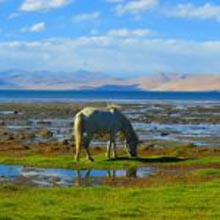
An ethereal walk traversing countries and geographies, from Indian desert mounds-of-sand like mountains of Spiti Valley to the vast expansive high altitude plateau, Changthang – the home of the nomadic Changpa’s in Tibet, is the Parang la trek. The trek reaches it crescendo, not just on one day – the day we cross the Parang la across the ragged mountains, but another – the day we soak in the serenity of the Tso Moriri. The trek is an endless walk along through green meadows where the Kiangs (Tibetan wild horses) run wild, through little bushes of green in the arid brown of the Spiti that are the rhododendrons, along the cobalt blue stillness of the Tso Moriri and then on to the vast expansive ill-populated wetlands of the Changthang plateau. This trek embodies the art of mindfulness – Vipaasana Meditation – One is truly mindful of their surrounding, their breath and the breathtaking visages.
The trip starts with a drive across the stunning landscapes and the lush green meadows of the Kullu valley to the arid mountain scapes of Lahaul and Spiti. To get acclimatised to the high altitude, the next couple of days is well spent understanding the ways of the monks and the people of Spiti in the millennial old, favourites of Dalai Lama -Toba and Kye/Key monasteries, soaking up some good energy and history. Taking the traditional trade route between Ladakh and Spiti, we cross Parang la (5580m), the source of the Pare Chu River that flows from India to Tibet and final circles back to India to join the Spiti River. Then we descends to the almost never-ending plateau of Changthang and walk to the Tso Moriri (Lake Moriri) we get to sight some exotic migratory birds like the rare Great crested grebe, endangered Black-necked cranes, the lake is also the lone breeding home for the Bar-headed geese. Camping at the green grounds of Chumik Shilte and Kiangdam, we get to sleep under the stars and uninhabited lands of the Changthang, is a surreal experience of living, even if for few days, amongst the magnificent glacier peaks and still blue lakes. The trip ends with another scenic drive across Changthang to Leh, the main city of Ladakh, for a leisure day in Leh to relax the aching muscles after the challenging yet exciting walk.Flights to and out of Leh
Personal equipment and sleeping bags
Any additional transport or activities apart from the trip itinerary
Travel Insurance
Expenses rising through unforeseen conditions like bad weather, natural calamities, flight cancellations, etc
Rescue and evacuation services
Expenses of any personal nature like phone calls,
drinks, cigarettes, souvenirs, laundry, etc
Tips
Board the Himachal Tourism Volvo bus from outside Himachal Bhavan in Mandi House in the evening. There are multiple Volvo buses that depart between 5:30pm and 7:00pm. The bus stops for dinner on the way. Most of the trekking group if not all would be booked on the same bus.
The bus journey takes all night and you should be in Manali town before 10am in the morning. Our representative will pick you up from the bus stand and transfer you to our hotel near Prini. After breakfast, you can rest till afternoon after the long bus journey. Post-lunch, there will be a gear check and comprehensive briefing about the trip. You have the evening free to do some last minute shopping or checkout some Manali attractions. It is important to hit the bed early and rest well for the next day’s long drive.
We start super early from Manali to help us cross the Rohtang Pass before the rush of tourists who flock the pass daily for views of snow. We stop by at Marhi just 16 kms before the pass for a quick breakfast. Rohtang Pass is snowbound for most of the winter months and opens up in Summer by the first week of June. On the other side of the pass is Lahaul, and is in complete contrast to the green Kullu Valley. Lahaul is like a semi-desert and is part of the rain shadow area of the Himalayan range. We take a right turn before Khoksar towards Chattru. From here on till we cross the Kunzum Pass(4590m) is unpaved road and is mostly a bumpy jeep track. We may have to get off the car in some stretches where water flows onto the road. The entire drive though is totally scenic with changing visuals all along. The Lahaul and Spiti part of the drive will force you to keep getting off the car to click photos. We reach Kaza, the capital of Spiti by evening.
Spiti has the highest density of ancient monasteries spread over a small area. Over a half day sightseeing tour we cover 3 of the main monasteries around Kaza. Ki monastery is just a 15 mins drive above Kaza. Kye monastery is more than 1000 years old and is the main gompa of Kaza with hundreds of resident monks. Incredible views of Spiti Valley from the top of the monastery. The monastery has a few small old shrines and a huge new one. The cardamom tea served by the monks is an absolute classic.
We then drive to Tabo monastery, the oldest continuously functioning Buddhist monastery in India and Himalaya. Tabo monastery is unique because of its architecture. The 9 temples are all built like fortresses from the outside with white mud making the plaster. It gives you a very Egyptian look and unlike all monasteries that are built on hilltops or high grounds, this is built in the valley in between the village. The walls of the temples are painted with frescoes depicting tales from the Buddhist pantheon.
We then move on to Dhankar, another millennium old monastery built on a mud spur high above the confluence of Pin and Spiti rivers. The scenery is stunning from this monastery which has many small shrines and caves for meditation.
Kibber used to be the highest village in Asia just a few years ago, after which Hikkim took over. About 45 mins drive from Kaza, is Kibber, the starting point for the Parang La trek. Kibber is in the shape of an arch with Kanamo peak towering from behind the village. Kanamo is a famous trekking peak that is attempted from Kibber. Our trekking crew and horses will be waiting at the roadhead. We spend about an hour loading all the camping and kitchen equipment onto horses and then walk towards Dumla, a cluster of farm fields belonging to residents of Kibber and Chichum. From Kibber, we walk on the motorable road for a while, then descend to a small stream with a bridge over it and walk the narrow trail which gradually climbs to Dumla. The sound of barking from the dogs announces the arrival of Dumla. We camp on the open grounds just a next to the green farm fields.
Thaltak is just 3 hours walk above Dumla camping grounds. We slowly gain height over the expansive open grounds of the mountain. The trail is slightly tougher than the previous day. Over 2.5 hours we reach the flat grounds of Thaltak. We get past these massive grounds and descend a little to a beautiful campsite overlooking Kanamo. The trek is kept short since we are gaining altitude.
The walk today is long starting first with a steep descent all the way to the narrow yet fast moving river. When we reach the river we realize it is a narrow gorge with steep mud walls on either side. We slowly make our way upstream first walking on the left of the river and then to the right for most parts. We might have to take off our shoes if the makeshift log bridge that connects the left bank to the right is broken. After crossing, it is a narrow trail traversing the mountain side. At some places there is a lot of scree and we have to move slowly. Soon we reach at the foot of the mountain and we start climbing up towards the base of the pass. The ascent is steep in a few places. The high altitude, the rigour of the ascent, and the hot sun makes the day demanding yet very fulfilling once we reach our basecamp at 5050m. The arid mountains surrounds us and reflect off multiple hues with the sun. We retire to bed early in preparation for the big Pass crossing day tomorrow.
We make a super early start, and are asscending from the basecamp as early as 6.30am. The walk to the pass is all over moraine and patches of frozen snow and ice. It takes about 2 hours to reach the very high pass. We are taken by surprise when we reach the top to see huge swathes of glacier and snow cover across the pass. We spend a few moments rejoicing and taking in the view all around. We then slowly descend , walking across the glacier. There are sections of glacier with sharp icicles and crevasses. We have to remain on high alert for the next hour and half as we negotiate over the glacier and descend to the other base. Once past the glacier, the trail is easy and we slowly make our way to Dak Karzong in the Changthang Plateau. The wind is very strong on this side of the pss and temperatures are much colder. Expect a long, tiring yet an exciting day. The place gets its name from the phantom like bald mountain beside the camping grounds.
Trekking in Changthang is like trekking through a desert. You see your destination but you never reach it for a long long time. There are few ups and downs but mostly walking over flat grounds with a few ice-cold river crossings. At many places right at the beginning we will have to take off our shoes and wade through ice cold water to get across. Since we would have acclimatized to the high altitude, walking becomes easy and we tend to spend more time soaking in the unique landscape of Changthang and clicking countless photos of the stunning scenery. There are multiple places to camp along the way. We could either have long walking days or cut them into shorter ones and use up one of our rest days scheduled ahead.
We make an early start since we need to cross the river at Norbu Sumdo. This is the toughest part of the walk because of the fast current and ice cold water. We try and make it to the river early which splits into multiple channels and is very wide at Norbu Sumdo. In olden times, this used to be meeting grounds for the kings/armies of Spiti and Ladakh. And it is believed to have been a big trading ground from ancient times.
The name Chumik Shilte comes from ‘Chu’ meaning water and there is a natural fresh water spring at Chumik Shilte which has created a pretty lake all around it. Most of the camping grounds around Chumik is green because of the presence of a lot of water. Closer to the waterbody the grounds get swampy. For the horses it is a field day for grazing after subsisting on little for the past few days on this arid trail.
Today is a short walk to the edge of the turquoise Tsomoriri lake called Kiangdam. This campsite and the one at Chumik Shilte are easily the best campsites on the entire trail. The scenery is absolutely breath taking. The oasis like massive Tsomoriri lake right in the heart of an arid plateau, flanked by sun scorched mountains all around with the 6500m twin peaks of Chamsher and Lungsher Kangri highlighting the skyline. This is where the changthang nomads normally camp before mid-Auguest before they move on to other areas in the side Valleys. It is fascinating to visit and explore remnants from their temporary shelters.
Trekking time: 3 hrs
A day to rest those aching legs and enjoy the serenity around the lake. Read a book, go for a trek on the lake periphery or just spot the exotic feathered visitors that hang around the lake. Tsomoriri wetlands are home to some of the most endangered bird species including Black necked cranes that migrate all the way from Siberia to Ladakh in the Summers, Brahminy ducks, Bar-headed goose, and others. There are a lot of zebra lookalikes but with shiny brown coats that hang around Kiangdam and Chumik Shilte. They are they wild Tibetan wild asses called Kiangs in the local language. The horses are generally scared of them and need to be tied in the nights for fear of them being chased away from campsites by Kiangs.
A superb end to the trek which gives us the opportunity to walk on the periphery of the lake for a good 6-7 hours to reach the nomadic village of Korzok. The trail is mostly over flat ground on the banks of the lake with a few ups and downs. On our right is the lake and the twin peaks of Chamsher and Lungsher flanking it, while in the left if the Mentok Range making the entire walk a total delight. Towards the end we are walking on loose sand making the walk laborious. Korzok is a rustic village on the boundary of the lake with a beautiful monastery. Closer towards the lake are the huge swathes of farming fields where the locals are seen toiling throughout the day. The natives of Korzok live a simple, tough life at an high altitude and extreme temperatures. Winters are the coldest on Changthang plateau which freezes the entire lake forming a sheet of ice over the surface called the chadar. There are many deluxe fixed tented accommodation here that cater to the tourists who visit Korzok to witness the glory of the turquoise Tsomoriri and the mountain ranges around.
Our Taxis come in early in the morning or would have reached a night before. We pack camp and head out after breakfast towards Leh. The drive is over a vast area of beautiful Changthang, past Mahe bridge and Chumathang Hot Springs where we stop for Tea. Lunch is at the checkpost at Upshi after which we reach Leh in 2 hrs. The entire drive is scenic and is a great way of reaching Leh after our arduous trek.
Leh is the main city of Ladakh and is a vibrant traveller hub during the summers. This is the base camp for a lot of treks and climbs that either start or culminate nearby. It has a charming market with souvenir and artifact shops lining the streets.
Early morning departure to the airport which is 15 mins drive from Leh town. Departure to Delhi and onward. Trip Ends!
We are Dealing in Tour & Travels Services Read More...
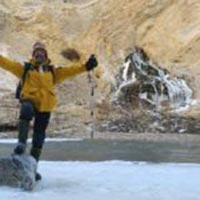 12D/11N
12D/11N
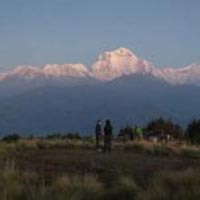 9D/8N
9D/8N
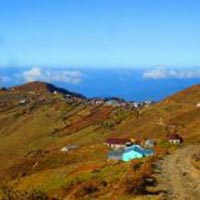 7D/6N
7D/6N
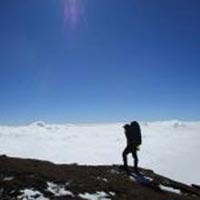 17D/16N
17D/16N
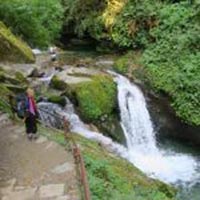 12D/11N
12D/11N
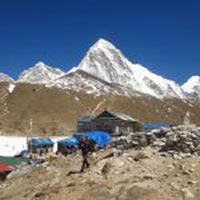 16D/15N
16D/15N
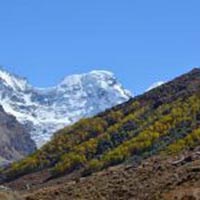 13D/12N
13D/12N
New Delhi - Manali - Chikkaballapur - Lahaul & Spiti
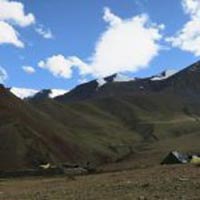 11D/10N
11D/10N
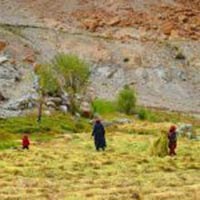 10D/9N
10D/9N
 16D/15N
16D/15N
New Delhi - Bikaner - Jaisalmer - Jodhpur - Ranakpur - Jaipur - Agra - Mandawa - Ti..
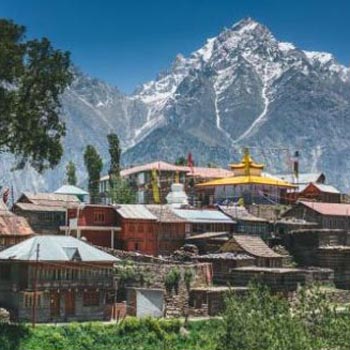 16D/15N
16D/15N
Shimla,Kinnaur,Manali,Amritsar Romantic ..
Shimla - Kinnaur - Manali - Amritsar
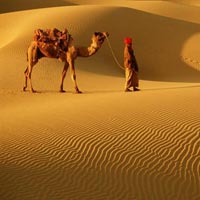 16D/15N
16D/15N
Bikaner - Jodhpur - Jaisalmer - Mount Abu - Chittorgarh - Pushkar - Ajmer - Jaipur ..
 16D/15N
16D/15N
Golden Triangle with Yoga Meditation Tour
New Delhi - Agra - Jaipur - Rishikesh - Haridwar
 16D/15N
16D/15N
16 Days North & South India Tour
Agra - Jaipur - Bangalore - Periyar - Mumbai - Mahabaleshwar
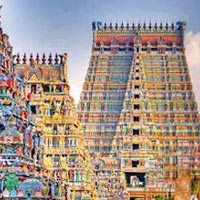 16D/15N
16D/15N
Mumbai - Goa City - Belgaum - Bagalkot - Badami - Hassan - Mysore - Bangalore - Hos..
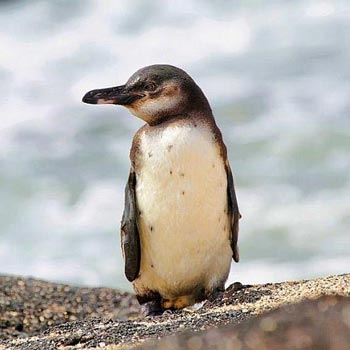 16D/15N
16D/15N
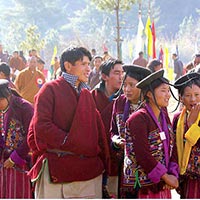 16D/15N
16D/15N
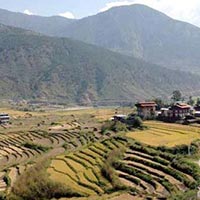 16D/15N
16D/15N
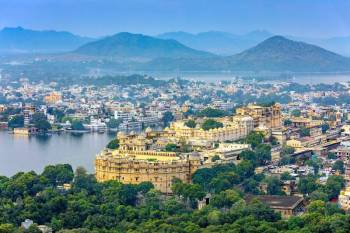 12D/11N
12D/11N
11 Nights 12 Days - Delhi Agra Rajasthan
New Delhi - Mathura - Agra - Jaipur - Ajmer - Pushkar - Udaipur - Mount Abu - Ranak..
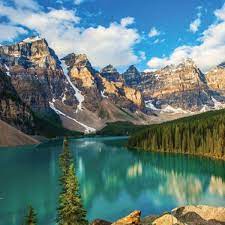 11D/10N
11D/10N
Himachal Pradesh Tour Package 10 Night -..
Dalhousie - Khajjiar - Kufri - Manali - Shimla - Dharamshala - Amritsar - Mcleodganj
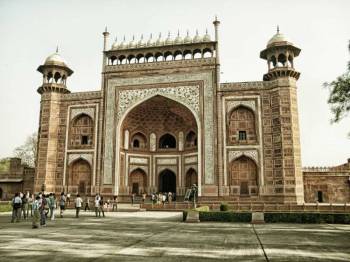 11D/10N
11D/10N
10 Nights Uttar Pradesh Tour Package Fro..
New Delhi - Agra - Prayagraj - Lucknow - Mathura - Varanasi - Ayodhya - Vrindavan -..
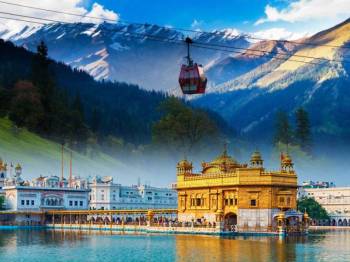 11D/10N
11D/10N
10Night Himachal Pradesh Tour Ex - Shimla
Dalhousie - Khajjiar - Kufri - Manali - Shimla - Dharamshala - Amritsar - Mcleodganj
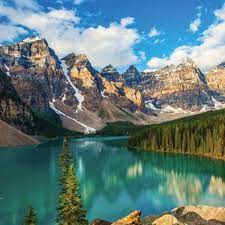 11D/10N
11D/10N
Himachal Pradesh Tour Package 10 Night -..
Dalhousie - Khajjiar - Kufri - Manali - Shimla - Dharamshala - Amritsar - Mcleodganj
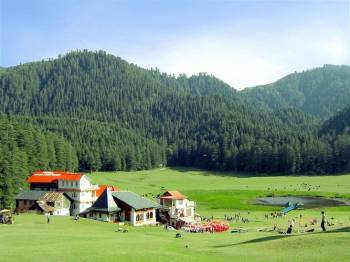 10D/9N
10D/9N
9 Night - 10 Days Himachal Pradesh Tour ..
Dalhousie - Khajjiar - Kufri - Kullu - Manali - Shimla - Dharamshala - Amritsar - M..
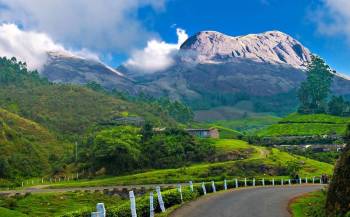 4D/3N
4D/3N
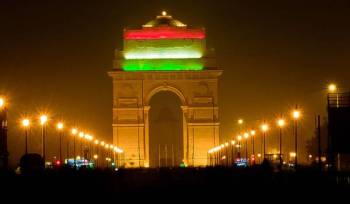 5D/4N
5D/4N
Delhi - Mathura - Vrindavan - Agra Tour ..
New Delhi - Agra - Mathura - Vrindavan
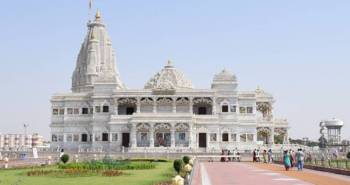 5D/4N
5D/4N
Golden Triangle Tour With Mathura 4 Nigh..
New Delhi - Jaipur - Agra - Mathura